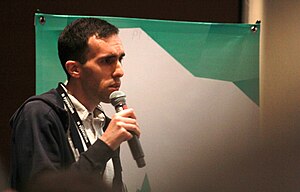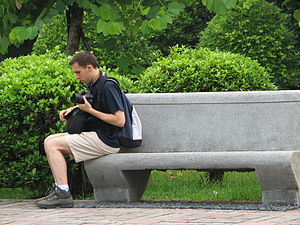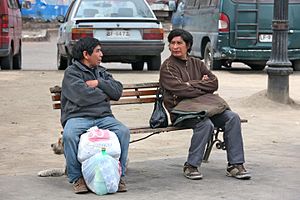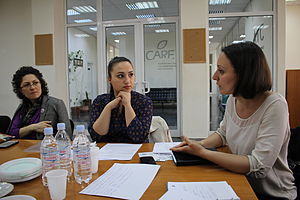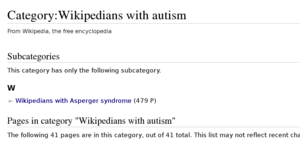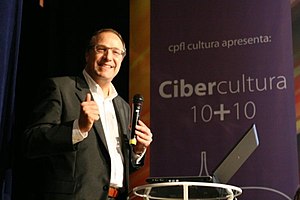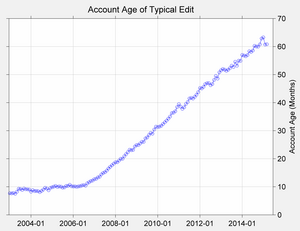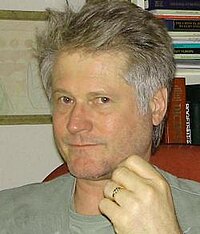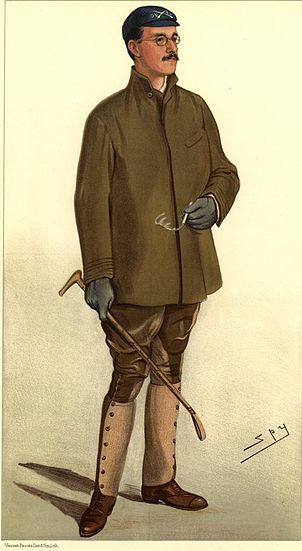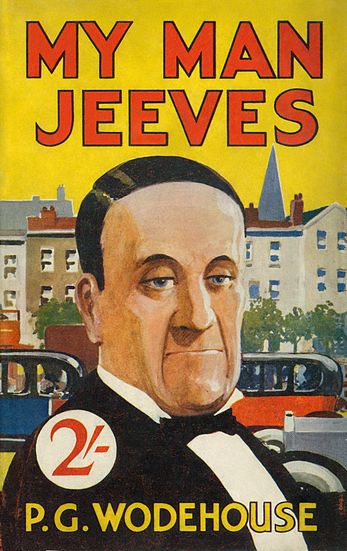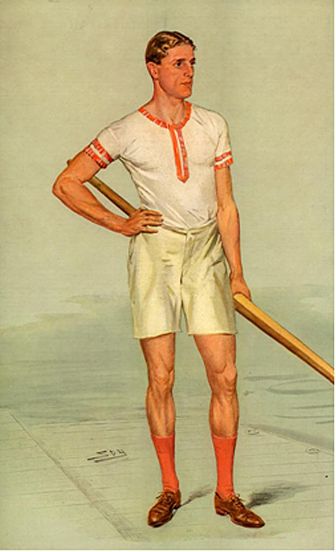Wikipedia:Wikipedia Signpost/Single/2015-07-29
BARC de-adminship proposal; Wikimania recordings debate
BARC proposal for removing adminship under discussion
Kudpung and Worm That Turned have introduced an RFC proposing to create a "Bureaucrats' Admin Review Committee" (BARC) composed of bureaucrats empowered to remove adminship rights. Each case before the Committee would last only seven days, at which point the case would be rejected, the administrator's tools would be removed, or the case passed on to the Arbitration Committee.
A 2012 discussion concluded that the current methods to remove adminship were insufficient and that a "community-driven method" – such as this proposal – should be implemented. This feeling still exists, as evidenced by the dozens of support votes the RFC quickly amassed when it was opened. Dennis Brown wrote of all the proposed solutions to this issue, the BARC proposal "has the best blend of safety, equity, speed and flexibility. This will help increase the number of admin and reduce the impression that admin are guaranteed to be admin for life."
The proposal theorizes that it would also address the pressing problem of the dwindling ranks of administrators, positing that requests for adminship – widely considered an arduous process – would be easier to pass if removing the right were easier too. The proposal would make no direct changes to the RfA process, however. Gatoclass wrote, "This is not going to make a lick of difference to the number of successful RfAs in my view, but it may well lead to fewer people bothering to stand in the first place." Carrite disagrees, and wrote, "Easier removal of tools of abusive Administrators will lessen the stakes and hopefully soften the tone of the RFA process."
Bureaucrats, given their "very high level of community trust" – requesting bureaucratship is far more arduous, requiring around 85% support – play a main role in the proposed committee; half of its members would come from the ranks of the bureaucrats. However, concerns were raised about the workload for bureaucrats – there are only 33 of them as of this writing – and giving them a new task the role was not originally designed to implement. Wehwalt wrote, "Bureaucrats were not selected for their abilities to investigate and judge." Chillum asked, "Has anyone asked the crats if they even want this job?" On the other hand, Tony1 affirmed the bureaucrats' aptness for the job: "Bureaucrats are appointed through a very high bar for trust (higher than stewards, even); and in my view their role has always been too narrowly conceived. Since crats exercise judgement in closing RFAs, it is natural and logical that they should play a role further down the pipeline."
A number of editors expressed the concern that it would be taken advantage of to target administrators who made unpopular decisions, including Chillum, who wrote "This system sounds like an invitation for a witch hunt every few days." Kudpung tried to assuage such concerns, reiterating the bureaucrats' role as gatekeeper: "In this system, the Bureaucrats are not just gatekeepers, they are part of the deliberating committee."
As of this writing, the RFC has about 70% support; time will tell where it goes from here, but one thing is for sure, the community is talking about this proposal in droves, with over 125 having !voted already, and many more participating in the discussion.
Recording the Wikimania video controversy in slow motion
Last week, we reported on the situation with video at Wikimania 2015. In short, only keynote speeches were recorded, not all sessions, as had been done in years' past, including at Wikimania 2014 in London. This angered some editors, who felt this plan of only recording keynotes was poorly communicated; one individual expressed that the point of recording video is so that one need not attend to be informed. Even a WMF staffer conceded the lack of recording was problematic. Compounding that controversy was a comment from Victor Grigas pertaining to the licensing of videos, noting that the licensing process was in the hands of Wikimedia Mexico (WMMX). Katherine Maher, the Foundation's Chief Communications Officer, was unable to comment last week due to staff vacations. She later followed up with us.
In regards to Grigas' comment regarding licensing, Maher suggested that the confusion was mostly over procedure:
| “ | The default rightsholder is the person holding the camera or pressing record, even when that person is acting under the direction of another, including contract services unless stipulated otherwise. In Mexico, we worked with a contracted video crew. We wanted to make sure that both the final edited product and the unedited video would be freely licensed, but as in any creative work, we knew that the product could be construed as being copywritten by the videographers, As such, Grigas recommended unambiguous in the contract language that would transferring the rights to WMMX, knowing that they would only release under a CC-BY-SA 3.0 (or compatible) license. | ” |
The Signpost contacted Ivan Martinez, a representative of Wikimedia Mexico, to ask when the videos would be released, under what license, and where they could be found. We received no reply by press time. We also received a message from Ellie Young, the WMF Conference Coordinatior, who indicated that she would be able to reply to an inquiry upon returning from her vacation earlier this week; but again, we received no reply.
In regards to only recording keynote sessions, Maher cited cost as the primary factor in that decision, one she said the Foundation revisits every year. "Recording all the sessions would have been prohibitively expensive, and the reality is that most Wikimania videos only get a few hundred views," she said. She acknowledged the confusion the decision caused, noting that people probably assumed that everything would be recorded, as it was in London.
A number of Wikimedians objected to the decision not to record all the sessions. In true Wikimedian fashion, a number of them have assembled a list of publicly available videos made by attendees. On the mailing list Wikimania-l, Guillaume Paumier (Guillom) wrote: "I realize it's probably too late to do anything for this year's Wikimania, but I'd like to start a discussion about making video recordings of all sessions (not just a selection of them) a requirement for upcoming Wikimania bids."
The Signpost will continue to convey any additional relevant information or findings regarding the video situation from the recent conference.
July Research Showcase
The Wikimedia Foundation's Research Showcase on July 29 offered two presentations.
Aaron Halfaker (Halfak (WMF)) presented the results of a study on VisualEditor's effect on newly registered editors. This comes two years after a previous study and a number of improvements to VisualEditor. The current study found that there was "no difference in newcomer productivity", a small decrease in the burden on current editors, and that new editors were less likely to save their edits and spent more time before saving them.
Stanford University students Juhana Kangaspunta and Thomas Palomares presented "Wikipedia Knowledge Graph with DeepDive", a project using a tool called DeepDive to extract data from Wikipedia and add it to Wikidata.
Brief notes
- Stub contest: The Stub Contest for expanding stub-class articles is running from August 1–31. The idea is to expand tiny or uncited stubs to a basic cited start-class (or better) article. This year, there are seven £25 Amazon vouchers up for grabs as a sort of 'lucky dip/raffle', with each qualifying entry serving as one 'ticket'. The editor with the most points will receive a £50 Amazon voucher, editor who expands the oldest stub will get a £25 voucher. As previously, vouchers are kindly donated by Wikimedia UK. So come and enter at Wikipedia:Stub Contest/Entries!
- Trouble with the Creative Commons image license?: After an initial post regarding an editor on the German Wikipedia engaging in "non-wiki-love" relating to image attribution, a lengthy discussion ensued on the Wikimedia-l mailing list regarding Creative Commons licenses.
- Quarterly report due imminently: Components of the WMF's next quarterly report were released and discussed on the Wikimedia-l mailing list. There was significant subsequent dialogue over whether community or board authorization is necessary to implement a new friendly-space policy pertaining to grant proposals on Meta. Numerous foundation staffers as well as a few community members sought to rebuff an argument that authorization would be necessary in the name of good procedure.
- Grant eligibility announcement: WMF program officer Winifred Olliff made an announcement regarding eligibility of various entities for grants on the Wikimedia-l mailing list.
- New VP of Strategic Partnerships hired: Replacing the outgoing Koroush Karimkhany, WMF announced that it hired Sheree Chang to fill the same role. Chang comes to the Foundation after being Head of Revenue and Partnerships at N3twork.
- Brad Jorsch earns promotion: Brad Jorsch, the author of numerous highly-active Wikipedia bots including the venerable AnomieBOT, has been promoted to senior software engineer for WMF, according to a release to the Wikitech mailing list.
- New administrators: The Signpost welcomes the English Wikipedia's newest administrator, Cyphoidbomb, whose request for adminship accrued 118 supports to 30 opposes, the latter mostly related to a copyright issue. Bureaucrat Acalamari stated that the issue was a "one-time error in Cyphoidbomb's otherwise excellent record", and that otherwise he found consensus to promote the editor.
- Wikinews ArbCom elections: Elections on Wikinews for their Arbitration Committee have just concluded. Six candidates, including five incumbent Arbitrators, vied for six open spots on the Committee. Wikinews holds yearly elections for its six-member Arbitration Committee.
My life as an autistic Wikipedian
This article, the basis for his talk of the same name at Wikimania 2015, was originally posted on the author's blog and is reprinted with his permission.
Two years ago, I discovered that I was on the autism spectrum. As I learned more about myself and the way my brain worked, I started to look at past experiences through the lens of this newly-found aspect. In this essay, I share some of what I’ve learned along the way about my successes, my failures, and many things that confused me in the past, notably in my experiences in the Wikimedia movement.
At age 4, I was in nursery school, the French equivalent of Kindergarten. I don't have many memories about that time, but my parents remember that, while I wasn't usually enthused about going to school during the week, I would often ask to go on Saturdays, because most of the other kids weren't there.
It wasn't that I didn't like them; it was because the school was much quieter than during weekdays, and I had all the toys to myself. I didn't have to interact with other children, or share the pencils, or the room. I could do whatever I wanted without worrying about the other kids.
I didn't know it at the time, but it would take me nearly 30 years to look back at this story and understand how it made complete sense.
Today
I'm now 32 years old, and a lot has changed. Two years ago, after some difficulties at work, my partner decided to share his suspicions that I might be on the autism spectrum. I knew little about it at the time, but it was a hypothesis that seemed to explain a lot, and seemed worth exploring.
Sure, the subject had come up before a few times, but it was always as a joke, an exaggeration of my behavior. I never thought I fitted that label. One problem is that autism is usually represented in a very uniform manner in popular culture. Movies like Rain Man feature autistic savants who, although they have extraordinary abilities, live in a completely different world, and sometimes aren't verbal. The autism spectrum is much more diverse than those stereotypical examples.
After I started researching the topic, and reading books on autism or autobiographies by autistic people, I realized how much of it applied to me.
It took a bit longer (and a few tests) to get a confirmation from experts, and when it came, many people still had doubts. The question that came up the most often was "But how was this never detected before?" Autism is generally noticed at a much younger age, and it seemed that for most of my life, I had managed to disguise myself as "neurotypical", meaning someone whose brain works similarly to most people.
The current prevailing hypothesis to explain this, based on an IQ test taken as part of the evaluation process, is that I am privileged to have higher-than-average intellectual capacities, which have allowed me to partly compensate for the different wiring of my brain. One way to illustrate this is to use a computer analogy: in a way, my CPU runs at a higher frequency, which has allowed me to emulate with software the hardware that I'm missing. What this also means is that it can be exhausting to run this software all the time, so sometimes I need to be by myself.
As you can imagine, realizing at 31 that you are on the autism spectrum changes your perception dramatically; everything suddenly starts to make sense. I've learned a lot over the past two years, and this increased metacognition has allowed me to look at past events through a new lens.
In this essay, I want to share with you some of what I've learned, and share my current understanding of how my brain works, notably through my experience as a Wikimedian.
One caveat I want to start with is that autism is a spectrum. There's a popular saying among online autistic communities that says: "You've met an autist, you've met one autist." Just keep this in mind: What I'm presenting here is based on my personal experience, and isn't going to apply equally to all autistic people.
The picture at right was taken during Wikimania 2007 in Taipei. I was exploring the city with Cary Bass (Bastique) and a few other people. Looking back at this picture now, there are a few things I notice today:
- I'm wearing simple clothes, because I have absolutely no sense of fashion, and those are "safe" colors.
- I'm carrying two bags (a backpack and a photo bag), because I always want to be prepared for almost anything, so I carry a lot of stuff around.
- I'm sitting down to change a lens on my camera, because it's a more stable position to avoid dropping and breaking expensive gear. I've learned that this habit of using very stable positions is actually a mitigating strategy that I developed over the years without realizing it, to compensate for problems with balance and motor coordination.
Spock
A good analogy to help understand what it's like to be autistic in a neurotypical society is to look at Mr. Spock, from the original Star Trek. The son of a Vulcan father and a human mother, Spock is technically half-human, but it is his Vulcan side that shows the most in its interactions with the crew of the Enterprise.
Some of the funniest moments of the show are his arguments with the irascible Dr. McCoy. In one episode, McCoy calls him an "unfeeling automaton" and "the most cold-blooded man [he's] ever known", to which Spock responds: "Why, thank you, Doctor."
As a Vulcan, Spock's life is ruled by logic. Although he does feel emotions, they are deeply repressed. His speech pattern is very detached, almost clinical. Because of his logical and utilitarian perspective, Spock often appears dismissive, cold-hearted, or just plain rude to his fellow shipmates.
In many ways, Spock's traits are similar to autism, and many autistic people identify with him. For example, in her book Thinking in Pictures, Temple Grandin, a renown autistic scientist and author, recounts how she related to Spock from a young age:
| “ | Many people with autism are fans of the television show Star Trek. [...] I strongly identified with the logical Mr. Spock, since I completely related to his way of thinking.
I vividly remember one old episode because it portrayed a conflict between logic and emotion in a manner I could understand. A monster was attempting to smash the shuttle craft with rocks. A crew member had been killed. Logical Mr. Spock wanted to take off and escape before the monster wrecked the craft. The other crew members refused to leave until they had retrieved the body of the dead crew member. [...] I agreed with Spock, but I learned that emotions will often overpower logical thinking, even if these decisions prove hazardous.[1] |
” |
In this example, and in many others, Spock's perception filter prevents him from understanding human decisions mainly driven by emotion. Those actions appear foolish or nonsensical, because Spock interprets them through his own lens of logic. He lacks the cultural background, social norms and unspoken assumptions unconsciously shared by humans.
The reverse is also true: Whenever humans are puzzled or annoyed by Spock, it is because they expect him to behave like a human; they are often confronted to a harsher truth than they would like. Humans interpret Spock's behavior through their own emotional perception filter. They often misunderstand his motives, assume malice, and superimpose intents that change the meaning of his original words and actions.
Autism
You're probably familiar with the conceptual models of communication. In many of those models, communication is represented as the transmission of a message between a sender and a receiver.
If you apply this model to an oral conversation, you quickly see all the opportunities for miscommunication: From what the sender means, to what they actually say, to what the receiver hears, to what they understand, information can change radically, especially when you consider nonverbal communication. It's like a 2-person variation of the telephone game. In the words of psychologist Tony Attwood:
| “ | Every day people make intuitive guesses regarding what someone may be thinking or feeling. Most of the time we are right but the system is not faultless. We are not perfect mind readers. Social interactions would be so much easier if typical people said exactly what they mean with no assumptions or ambiguity.[2] | ” |
If this is the case for neurotypical people, meaning people with a "typical" brain, imagine how challenging it can be for autists like me. A great analogy is given in the movie The Imitation Game, inspired by the life of Alan Turing, who is portrayed in the film as being on the autism spectrum.
Historical accuracy aside, one of my favorite moments in the movie is when a young Alan is talking to his friend Christopher about coded messages. Christopher explains cryptography as "messages that anyone can see, but no one knows what they mean, unless you have the key."
A very puzzled Alan replies:
| “ | How is that different from talking? [...] When people talk to each other, they never say what they mean, they say something else. And you're expected to just know what they mean. Only I never do. | ” |
Autistic people are characterized by many different traits, but one of the most prevalent is social blindness: We have trouble reading the emotions of others. We lack the "Theory of mind" used by neurotypical people to attribute mental states (like beliefs and intents) to others. We often take things literally because we're missing the subtext: it's difficult for us to read between the lines.
Liane Holliday Willey, an autistic author and speaker, once summarized it this way:
| “ | You wouldn’t need a Theory of Mind if everyone spoke their mind.[3] | ” |
How are you?
Many languages have a common phrase to ask someone how they're doing, whether it's the French Comment ça va?, the English How are you?, or the German Wie geht's?
When I first moved to the US, every time someone asked me "How are you?", I would pause to consider the question. Now, I've learned that it's a greeting, not an actual question, and I've mostly automated the response to the expected "Great, how are you?" It only takes a few milliseconds to switch to that path and short-circuit the question-answering process. But if people deviate from that usual greeting, then that mental shortcut doesn't work any more.
A few weeks ago, someone in the Wikimedia Foundation office asked me "How is your world?", and I froze for a few seconds. In order to answer that question, my brain was reviewing everything that was happening in "my world" (and "my world" is big!), before I realized that I just needed to say "Great! Thanks!".
Privilege and pointed ears
This is only one of the challenges faced by autistic people, and I would now like to talk about neurotypical privilege. I'm a cis white male, and I was raised in a loving middle-class family in an industrialized country. By many standards, I'm very privileged. But, despite my superpowers, being autistic in a predominantly neurotypical society does bring its lot of challenges.
The most common consequence I've noticed in my experience, and in accounts from other autistic people, is a feeling of profound isolation. The lack of Theory of mind and the constant risk of miscommunication make it difficult to build relationships. It's not anyone's fault in particular; it's due to a general lack of awareness.
Imagine that you're talking to me face to face. You don't really know me, but I seem nice so you start making small talk. I'm not saying much, and you need to carry the discussion over those awkward silences. When I do speak, it's in a very monotone manner, like I don't really care. You try harder, and ask me questions, but I hesitate, I struggle to maintain eye contact, and I keep looking away, as if I'm making stuff up as I go.
Now this is what's happening from my perspective: I'm talking to someone I don't really know well, but you seem nice. I don't know what to talk about, so I keep quiet at first. Silences aren't a problem: I'm just happy to be in your company. I don't have very strong feelings about what we're talking about, so I'm speaking very calmly. You're asking me questions, and of course it takes a while to think about the correct answer. All this "eye contact" thing that I learned in school is taking a lot of mental resources that would be better used to compute the answer to your question, so I sometimes need to look away to better focus.
This illustrates one of many situations in which each person's perception filter caused a complete disconnect between how the situation was perceived on each side.
There are also many professional hurdles associated with being on the autism spectrum, and autists are more affected by unemployment than neurotypicals.[4] I'm privileged in that I've been able to find an environment in which I'm able to work, but many autists aren't so lucky. It's been well documented that people in higher-up positions aren't necessarily the best performers, but often people with the best social skills.
With that in mind, imagine what the career opportunities (or lack thereof) can be for someone who is a terrible liar, who has a lot of interest in doing great work, but less interest in taking credit for it, who doesn't understand office politics, who not only makes social missteps and angers their colleagues, but doesn't even know about it, someone who's unable to make small talk around the office. Imagine that person, and what kind of a career they can have even if they're very good at their job.
Casual relationships with colleagues and acquaintances are usually superficial; the stakes of the water cooler discussions are low, so people are more inclined to forgive missteps. However, friendship is another matter, and for most of my life, I have hardly had any friends, unless you use Facebook's definition of the term. Awkwardness is generally tolerated, but rarely sought after. It's not "cool".
Most of those issues arise because you don't have a way of knowing that the person in front of you is different. At least Spock had his pointed ears to signal that he wasn't human. His acceptance by the crew of the Enterprise was in large part due to the relationships he was able to develop with his shipmates. Those relationships would arguably not have been possible if they had not known how he was different.
Computer-mediated communication
Let me go back to that conceptual model of face-to-face communication. Now imagine how this model changes if you're communicating online, by email, on wiki, or on IRC. All those communication channels, that Wikimedians are all too familiar with, are based on text, and most of them are asynchronous. For many neurotypicals, these are frustrating modes of communication, because they're losing most of their usual nonverbal signals like tone, facial expressions, and body language.
However, this model of computer-mediated communication is much closer to the communication model of autists like me. There is no nonverbal communication to decrypt; less interaction and social anxiety; and usually, no unfamiliar environment either. There are much fewer signals, and those that remain are just words; their meaning still varies, but it's much more codified and reliable than nonverbal signals.
What there is online, instead, is plenty of time, time that we can use to collect our thoughts and formulate a carefully crafted answer. Whereas voice is synchronous and mostly irreversible, text can be edited, crafted, deleted, reworded, or rewritten until it's exactly what we want it to be; then we can send it. This is true of asynchronous channels like email and wikis, but it also extends to semi-synchronous tools like instant messaging or IRC.
It's not all rainbows and unicorns, though. For example, autists like me are still very much clueless about politics and reading between the lines. We tend to be radically honest, which doesn't fly very well, whether online or offline. Autists are also more susceptible to trolling, and may not always realize that the way people act online isn't the same as the way they act in the physical world. The internet medium tends to desensitize people, and autists might emulate behavior that isn't actually acceptable, regardless of the venue.
Autism in the Wikimedia community
Of course, one major example of wide-scale online communication is the Wikimedia movement. And at first glance, Wikimedia sites, and Wikipedia in particular, offer a platform where one can meticulously compile facts about their favorite obsession, or methodically fix the same grammatical error over and over, all of that with limited human interaction; if this sounds like a great place for autists (and a perfect honey trap) well, it is to some extent.
For example, my first edit ten years ago was to fix a spelling error. My second edit was to fix a conjugation error. My third edit was to fix both a spelling and a conjugation error. That's how my journey as a Wikipedian started ten years ago.
Wikipedians are obsessed with citations, references, and verifiability; fact is king, and interpretation is taboo. As long as you stay in the main namespace, that is. As soon as you step out of article pages and venture into talk pages and village pumps, those high standards don't apply any more. There are plenty of unsourced, exaggerated and biased statements in Wikipedia discussions.
That's in addition to the problems I mentioned earlier. As an autist, it can be hard to let go of arguments about things or people you care about. It's often said that autistic people lack empathy, which basically makes us look like cold-hearted robots. However, there is a distinction between being able to read the feelings of other people, and feeling compassion for other people.
Neurotypical people have mirror neurons that make you feel what the person in front of you is feeling; autistic people have a lot fewer of those, which means they need to scrutinize your signals and try to understand what you're feeling. But they're still people with feelings.
If you're interested in learning more about autism in the Wikimedia community, there's a great essay on the English Wikipedia, which I highly recommend. One thing it does really well is avoiding the pathologization of autism, and instead insisting on neurodiversity, meaning autism as a difference, not a disease.
Conclusion
Steve Silberman, who wrote a book on the history of autism, presented it this way:
| “ | One way to understand neurodiversity is to think in terms of human operating systems: Just because a PC is not running Windows doesn't mean that it's broken.
By autistic standards, the normal human brain is easily distractible, obsessively social, and suffers from a deficit of attention to detail.[5] |
” |
But still, neurodiversity has a cost. Sometimes, you'll be offended; sometimes, you'll be frustrated; and sometimes, you'll think "Wow, I would never have thought of that in a million years".
As I mentioned earlier, I believe Spock was only able to build those relationships over time because people were aware of his difference, and learned to understand and embrace it. Spock also learned a lot from humans along the way.
My goal here was to raise awareness of this difference that exists in our community, and encourage us to discuss our differences more openly, and to improve our understanding of each other.
There is a lot I didn't get into in this essay, and I might expand on specific points later. In the meantime, I'm available if you're interested in continuing this discussion, and you should feel free to reach out to me, whether in person or online.
Live long and prosper. \\///
Guillaume Paumier is a Senior Analyst with the Wikimedia Foundation
References
- ^ Temple Grandin. Thinking in Pictures. p.152.
- ^ Tony Attwood. The Complete Guide to Asperger's Syndrome. p.126.
- ^ Liane Holliday Willey, in Tony Attwood, The Complete Guide to Asperger's Syndrome, p.126
- ^ Maanvi Singh. "Young Adults With Autism More Likely To Be Unemployed, Isolated". NPR. 21 April 2015.
- ^ Steve Silberman. "The forgotten history of autism". TED 2015.
Wikipedia and collective intelligence; how Wikipedia is tweeted
A monthly overview of recent academic research about Wikipedia and other Wikimedia projects, also published as the Wikimedia Research Newsletter.
Wikipedia as an example of collective intelligence
An article[1] in Social Science Computer Review presents an argument that Wikipedia is an example of collective intelligence. It is primarily a theoretical piece, but the author is well-informed about Wikipedia's everyday workings, illustrating the theory with his knowledge of Wikipedia. The article heavily relies on Pierre Lévy's notion of "humanistic collective intelligence". The author argues that Wikipedia displays some key characteristics of a collective intelligence process, such as software optimized for stigmergy (a mechanism of indirect coordination between agents or actions, such as the existence of edit history, talk pages, etc.); distributed cognition (such as existence of bots, and division of tasks between various tools and individuals, facilitating their actions), and possibly, through it is not possible to prove beyond any doubt, emergence (a process whereby larger entities, patterns, and regularities arise through interactions among smaller or simpler entities that themselves do not exhibit such properties). The author concludes that Wikipedia thus exemplifies a special kind of collective intelligence, the aforementioned humanistic collective intelligence proposed by Lévy.
#Wikipedia and Twitter
review by Kim Osman
This study from OpenSym '15[2] analysed 2.5 million tweets, collected over a five-month period on Twitter, that linked to Wikipedia pages. The authors found tweets referencing Wikipedia in both English and Japanese linked to pages from their respective language versions of Wikipedia nearly all the time (97 and 94 percent respectively). However, in other languages, tweets often linked to a different language version of Wikipedia - roughly one fifth of the time. Interestingly, tweets in Indonesian referenced another language version more than half the time (linking to English Wikipedia in half the tweets) and of the links to English Wikipedia the authors found that 75% of linked articles did not have an equivalent Indonesian version. There was a long tail distribution of articles among the analysed tweets, with the authors noting certain “events” (like the Gamergate controversy) generating multiple tweets. Of the Top 20 Twitter users in the dataset, 19 were bots, with the most prolific tweeter being Wikipedia Stub Bot (@wpstubs). The authors do note that in their study there is not enough evidence to support the relationship between “how actively edited a certain article is and its popularity on Twitter.” This study does however raise interesting questions about the platform relationship between Wikipedia and Twitter and the role of bots in creating and maintaining this association. The authors note future research could consider the role of events in popularising Wikipedia articles on Twitter along with further examining motivations for inter-language linking on Twitter.
Briefly
- How old is the account making an average edit? Among other charts recently created by Dragons flight to visualize statistical data about the English Wikipedia community, this one shows that "the long-term trend is for the active community to gain about 6 months in average age for every year of time that passes in real life."
- Simplifying sentences by finding their equivalent on Simple Wikipedia: A preprint[3] by researchers at the University of Washington describes a method to automatically align sentences on the English Wikipedia and the Simple English Wikipedia about the same facts. Besides a hand-annotated dataset of corresponding (and non-corresponding) sentence pairs used to test and adjust the algorithm, their approach uses a "novel similarity metric" between of pairs of words which is based on synonym information from Wiktionary, resulting in a weighted graph called "WikNet" that consists of "roughly 177k nodes and 1.15M undirected edges. As expected, our Wiktionary based similarity metric has a higher coverage of 71.8% than WordNet, which has a word coverage of 58.7% in our annotated dataset". These datasets are available online. The following pair of sentences are presented as an example for good match found by the resulting method:
"The castle was later incorporated into the construction of Ashtown Lodge which was to serve as the official residence of the Under Secretary from 1782" (en:Ashtown Castle) vs.
"After the building was made bigger and improved, it was used as the house for the Under Secretary of Ireland from 1782." (simple:Ashtown Castle)
Other recent publications
A list of other recent publications that could not be covered in time for this issue – contributions are always welcome for reviewing or summarizing newly published research.
- "The Virtues of Moderation"[4] presents "a novel taxonomy of moderation in online communities", including a case study of Wikipedia (p.88).
- "Studying the Wikipedia Hyperlink Graph for Relatedness and Disambiguation"[5] From the abstract: "We show that using the full graph is more effective than just direct links by a large margin, that non-reciprocal links harm performance, and that there is no benefit from categories and infoboxes ..."
- "Wikidata through the Eyes of DBpedia"[6] From the introduction: "All DBpedia data is extracted from Wikipedia and Wikipedia authors thus unconciously also curate the DBpedia knowledge base. Wikidata on the other hand has its own data curation interface ... While DBpedia covers a very large share of Wikipedia at the expense of partially reduced quality, Wikidata covers a significantly smaller share, but due to the manual curation with higher quality and provenance information."
- "WikiMirs: A Mathematical Information Retrieval System for Wikipedia"[7]
- "Content Translation: Computer-assisted translation tool for Wikipedia"[8]
- "Peer-production system or collaborative ontology development effort: what is Wikidata?"[9] (to be presented at the OpenSym 2015 conference in August)
- "Big data and Wikipedia research: social science knowledge across disciplinary divides"[10]
- "Comparing language development in Wikipedia in terms of page views per Internet users"[11] See also Wiki-research-l mailing list discussion
- "Understanding Graph Structure of Wikipedia for Query Expansion"[12]
- "Turning Introductory Comparative Politics and Elections Courses into Social Science Research Communities Using Wikipedia: Improving Both Teaching and Research"[13]
- "Utilizing the Wikidata System to Improve the Quality of Medical Content in Wikipedia in Diverse Languages: A Pilot Study"[14]
- "Is it Possible to Enhance our Expert Knowledge from Wikipedia?"[15] From the English-language abstract: "In September 2013 two different questionnaires about medical issues were given to medical students, resident physicians and one medical specialist. The questioning was about diseases/symptoms, examinations/classifications and conservative therapy/surgery of the department of orthopaedics and traumatology. ... The survey has proven the up-to-dateness of Wikipedia articles and their listing on the first or second position on Google. Wikipedia contains a lot of bibliographical references, high-quality images and video material. Almost half (42,5 %) of all evaluated articles are appropriate for use in medical exams and in the daily clinical work."
- "Predicting elections from online information flows: towards theoretically informed models"[16] From the conclusions: "We have shown good evidence that an 'uncertainty effect' drives much Wikipedia traffic: newer parties which attracted a lot of swing voters received disproportionately high levels of Wikipedia traffic. By contrast, there was no evidence of a 'media effect': there was little correlation between news media mentions and overall Wikipedia traffic patterns. Indeed, the news media and Wikipedia appeared biased towards different things: with news favouring incumbent parties, whilst Wikipedia favoured new ones." (See also coverage of an earlier preprint by the same authors: "Attempt to use Wikipedia pageviews to predict election results in Iran, Germany and the UK")
References
- ^ Livingstone, Randall M. (2015-06-26). "Models for Understanding Collective Intelligence on Wikipedia". Social Science Computer Review. 34 (4): 497–508. doi:10.1177/0894439315591136. ISSN 0894-4393. S2CID 60657789.

- ^ Zangerle, Eva; Schmidhammer, Georg; Specht, Günther (2015). "#Wikipedia on Twitter: Analyzing Tweets about Wikipedia" (PDF). OpenSym '15. doi:10.1145/2788993.2789845. S2CID 5959813.
- ^ William Hwang, Hannaneh Hajishirzi, Mari Ostendorf, and Wei Wu: Aligning Sentences from Standard Wikipedia to Simple Wikipedia. NAACL-HLT, 2015. PDF
- ^ James Grimmelmann. "The Virtues of Moderation. " Yale Journal of Law and Technology. 17.42 (2015) http://yjolt.org/virtues-moderation
- ^ Agirre, Eneko; Barrena, Ander; Soroa, Aitor (2015-03-05). "Studying the Wikipedia Hyperlink Graph for Relatedness and Disambiguation". arXiv:1503.01655 [cs.CL].
- ^ Ali Ismayilov, Dimitris Kontokostas, Sören Auer, Jens Lehmann, Sebastian Hellmann. "Wikidata through the Eyes of DBpedia". http://arxiv.org/abs/1507.04180
- ^ Hu, Xuan; Gao, Liangcai; Lin, Xiaoyan; Tang, Zhi; Lin, Xiaofan; Baker, Josef B. (2013). "WikiMirs: A Mathematical Information Retrieval System for Wikipedia". Proceedings of the 13th ACM/IEEE-CS Joint Conference on Digital Libraries. JCDL '13. New York, NY, USA: ACM. pp. 11–20. doi:10.1145/2467696.2467699. ISBN 978-1-4503-2077-1.

- ^ Laxström, Niklas; Giner, Pau; Thottingal, Santhosh (2015-06-05). "Content Translation: Computer-assisted translation tool for Wikipedia articles". arXiv:1506.01914 [cs.CL].
- ^ Müller-Birn, Claudia; Karran, Benjamin; Lehmann, Janette; Luczak-Rösch, Markus (2015-05-24). "Peer-production system or collaborative ontology development effort: what is Wikidata?". doi:10.1145/2788993.2789836. S2CID 15126336. OpenSym 2015
- ^ Schroeder, Ralph; Taylor, Linnet (2015-02-24). "Big data and Wikipedia research: social science knowledge across disciplinary divides". Information, Communication & Society. 18 (9): 1039–1056. doi:10.1080/1369118X.2015.1008538. ISSN 1369-118X. S2CID 144817168.
- ^ Liao, Han-Teng (2015-03-15). "Comparing language development in Wikipedia in terms of page views per Internet users". Blog of Han-teng Liao, Oxford Internet Institute.
- ^ Guisado-Gámez, Joan; Prat-Pérez, Arnau (2015-05-06). "Understanding Graph Structure of Wikipedia for Query Expansion". Proceedings of the GRADES'15: 1–6. arXiv:1505.01306. doi:10.1145/2764947.2764953. ISBN 9781450336116. S2CID 8058094.
- ^ Kennedy, Ryan; Forbush, Eric; Keegan, Brian; Lazer, David (April 2015). "Turning Introductory Comparative Politics and Elections Courses into Social Science Research Communities Using Wikipedia: Improving Both Teaching and Research". PS: Political Science & Politics. 48 (2): 378–384. doi:10.1017/S1049096514002157. ISSN 1537-5935. S2CID 147555546.
 / Author's copy
/ Author's copy
- ^ Pfundner, Alexander; Schönberg, Tobias; Horn, John; Boyce, Richard D; Samwald, Matthias (2015-05-05). "Utilizing the Wikidata System to Improve the Quality of Medical Content in Wikipedia in Diverse Languages: A Pilot Study". Journal of Medical Internet Research. 17 (5): 110. doi:10.2196/jmir.4163. ISSN 1438-8871. PMC 4468594. PMID 25944105.
- ^ Rechenberg, U.; Josten, C.; Klima, S. (2015). "Is it Possible to Enhance our Expert Knowledge from Wikipedia?". Zeitschrift für Orthopädie und Unfallchirurgie. 153 (2): 171–176. doi:10.1055/s-0034-1396207. ISSN 1864-6743. PMID 25874396. S2CID 196457871.
 (German, with English abstract)
(German, with English abstract)
- ^ Yasseri, Taha; Bright, Jonathan (2015-05-05). "Wikipedia traffic data and electoral prediction: Towards theoretically informed models". EPJ Data Science. 5. arXiv:1505.01818. doi:10.1140/epjds/s13688-016-0083-3. S2CID 256241960.
Is Wikipedia a battleground in the culture wars?
Is Wikipedia a battleground in the culture wars?
In The Conversation, Russell Blackford (Metamagician3000), Wikipedia editor and Lecturer in Philosophy at the University of Newcastle, writes about the phrase "cultural Marxism" and his involvement in the related discussion on Wikipedia. Last December, Wikipedia's article on cultural Marxism was deleted following a contentious debate that spilled over onto User talk:Jimbo Wales after Wales reopened a closed discussion on the article's fate. The term is now a redirect to a section of the article on the Frankfurt School of philosophy called "conspiracy theory".
Dr. Blackford writes that the phrase has been embraced by a number of "right-wing ideologues", including the terrorist Anders Breivik, which use it to refer to "a concerted effort by an elite...to destroy Western morality and civilization." (Indeed, a number of right-wing blogs and message boards angrily denounced the December deletion, referring to it as "censorship".) However, Blackford explains that much of what is labeled "cultural Marxism" is often "nothing more than left-wing cultural criticism".
Blackford also discusses scholarly uses of the phrase, but distinguishes it from its ideological use. This use, he writes, "bears only a slight resemblance to the grand, semi-conspiratorial, civilization-wrecking ideology described by Breivik and others." He traces this use as far back as 1973, to the sociologist and philosopher Trent Schroyer's book The Critique of Domination. However, academic use of this term does not appear to have been consistent. Blackford notes "Its meaning remains somewhat unclear and contested, but there is at least some commonality of understanding."
On Wikipedia, Blackford writes, "polemicists" have denied these "legitimate uses" of the phrase. According to him, there is an "intransigent, vehement, and (to date) successful opposition from some well-entrenched Wikipedia editors to the existence of any 'cultural Marxism' article." He believes this is a sign of larger issues with the encyclopedia, which "has itself become a site for culture wars, with editors representing rival political tribes frequently attempting to impose their respective narratives as the official version of one or another cultural controversy." Because of this, "its articles have little credibility when it comes to explaining contemporary cultural and political controversies."
Another Wikipedia editor who frequently writes about cultural topics, Mark Bernstein (MarkBernstein), dissented from Blackford's viewpoint. Dr. Bernstein told the Signpost "as Prof. Blackford observes, contemporary right-wing extremists have latched on to the phrase to mean something entirely different from what Blackford’s earlier sources intended — and the early sources never used the term very extensively or to great effect." He notes that none of the varied uses of the term "have gained much traction or proven to be particularly helpful outside the originators’ immediate circle."
Bernstein supports the deletion of the article, writing that "An encyclopedia doesn't require a page for every phrase, slogan, or term of art ever proposed, and the project always has to balance the cost of creating and maintaining a page against its benefit." In this case, Wikipedia is "facing an onslaught from organized extremists who want to exploit its pages for their own purposes", and should delete "at least for now, a page that was never essential or indeed particularly useful". He adds that the article can be added again "if monographs and journals in the coming years find the term useful". (July 27)
In brief
- The 19th century persists: The Guardian reports that the article for Indigenous Australian rules football player Adam Goodes continues to be the target of racist vandalism (see previous Signpost coverage). (July 29)
- Larger donation ads: VentureBeat reports that the Wikimedia Foundation is now experimenting with full-page messages soliciting donations. The article was originally titled "Lack of donations drives Wikipedia to test massive new ads" before it was corrected. (July 27)
- Top Gear avoids Ofcom censure: British media reports that Ofcom has declared the BBC2 television program Top Gear was not in breach of "content standards for television". A complaint was made about a February 2014 episode, the first of series 21, in which a sign called "Pikey's Peak" was displayed. Pikey is an ethnic slur directed at Irish Travellers, but it is also a slang term roughly meaning "cheap", in this case referring to Richard Hammond's choice to drive a Vauxhall Nova SRi. In its decision, Ofcom noted the citation of an older version of the Wikipedia article for the term "pikey" by the BBC Trust in its response to the complaint. (July 27)
- Printing out the apocalypse: In Matter, Choire Sicha wonders what Wikipedia articles he would print out in the face of a climate change-created dystopia. He writes "I put the Wikipedia pages in for Novels, as well as Fiction, and also Literary Criticism, Literary Theory and also Literary Modernism, just because it seems like it would be really agonizing if everyone had to go through all that again." (July 27)
- Local editing: "Let’s edit Tulare’s wiki page", urges the Visalia Times-Delta, in order to make the article Tulare, California "a little bit more thorough and — honestly — more exciting." (July 27)
- More Parliament editing: PinkNews reports that the Wikipedia article for MP Stewart Jackson was edited by an IP address registered to the Parliament of the United Kingdom to remove material concerning "a disdainful message he sent a lesbian constituent." (July 25)
- Maintaining your own article: In Forbes, author Rob Asghar writes about the Wikipedia article of an unnamed "prominent leadership guru". Asghar writes that the article had been "hijacked" by proponents of EST, a large-group awareness training program that had its heyday in the 1970s, to over-emphasize minor historical links to the guru and EST. Asghar writes that he attempted to remove the text but was thwarted by Wikipedia editors who said "If you think the balance is wrong, it’s up to you to add other info that helps bring everything into the right balance," so he and others improved the article. Asghar concludes "It’s a helpful reminder that your personal brand is a story that’s either being told by you—or by a host of other forces who aren’t going to emphasize what’s most important to you." (July 23)
- PR editing: LinkedIn offers PR people "10 things you need to know about Wikipedia" (July 23)
- The Weedman goeth: New Jersey marijuana enthusiast Ed Forchion, better known as "NJWeedman", complained in The Trentonian about the deletion of his Wikipedia article last year. Weedman wrote that he was "wiped out of cyberhistory" and compared the deletion to "Texas...rewriting its history books". The article was deleted following an AfD discussion. A number of editors felt that being a perennial candidate for office with the Legalize Marijuana Party and his frequent arrests and other legal actions related to marijuana did not amount to sufficient notability (July 22)
- Financial editing: The Tribune de Genève reports that an account identifying itself as belonging to the Zurich Cantonal Bank deleted a section from the bank's article on the German Wikipedia regarding a 2006-2007 financial scandal. (July 9)
Even mammoths get the Blues
- Cambridge, Oxford, and the butler
-
Douglas McLean from the List of The Boat Race results rowed five times for Oxford between 1883 and 1887. (from Vanity Fair)
-
The gentleman's gentleman, the poker-faced Jeeves.
-
Raymond Etherington-Smith helped Cambridge to a 20-length victory in the first race of the 20th century. (from Vanity Fair)
Featured articles
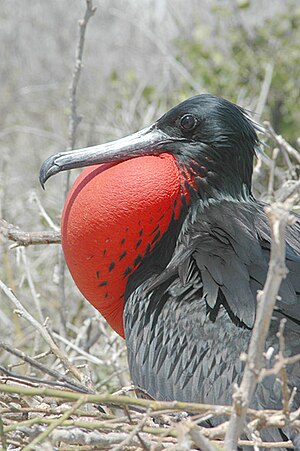
Five Featured articles were promoted this week.
- Columbian mammoth (nominated by FunkMonk) The Columbian mammoth was native to the southern half of North America, evolving from the steppe mammoth about 1.5 million years ago. The last specimens appear to have died out about 11,000 years ago. The largest adult specimens stood 13 feet high and weighed about 10 tons; only bones and hair have been recovered from deposits so far. Examples of their dung and stomach contents have also been found- it's estimated that a full-grown mammoth consumed about 400 pounds of vegetation and tree bark a day, browsing in their preferred habitat of open parkland (groves of trees set in grassland). There is possible evidence of hunting by humans from about 22,000 years ago. Sites associated with the rise of the Clovis culture from about 15,000 years ago provide evidence of hunting with spears, butchering, and the utilisation of bones for tool-making. The Columbian mammoth may have become extinct through overkill and/or climate change – warmer temperatures allowed the replacement of parkland by forests impassable for mammoths, treeless grasslands, and deserts.
- Frigatebird (nominated by Aa77zz and Casliber) Frigatebirds are tropical seabirds with black plumage, forked tails, and a wingspan up to 2.3 metres (7.5 ft), which allows them to float over the water for days on the wind currents. The males have a distinctive red gular pouch, which they inflate during the breeding season to attract females. Frigatebirds spend most of the day soaring in flight over the ocean, hunting for fish and squid. At night they sleep on trees or cliffs.
- Hurricane Gonzalo (nominated by Juliancolton) Hurricane Gonzalo started as a tropical wave off the west coast of Africa at the beginning of October, 2014. Moving across the Atlantic against "hostile winds", this area of low atmospheric pressure encountered a Kelvin wave moving eastwards- showers and thunderstorms associated with the tropical wave became more concentrated. The wave then passed the "upper-level trough axis" that had been causing the hostile winds, and developed into a "small surface low pressure area" and then a tropical depression. This depression then became a category 4 hurricane, which passed over Bermuda twice. After causing extensive damage in the Caribbean, the remains of the storm hit Europe as a large storm system.
- SMS Kaiser Wilhelm der Grosse (nominated by Parsecboy) SMS Kaiser Wilhelm der Grosse was a German battleship, launched in 1899. She was of a pre-Dreadnought type, with four main guns of 9.4 inch calibre, and driven by three steam engines. This type, common to many navies, was rendered outgunned and obsolete when HMS Dreadnought arrived in 1906, with her ten 12-inch guns and more powerful steam turbines. Kaiser Wilhelm served until 1910, when she underwent a major refit and was placed in reserve. On the outbreak of war in 1914, she and her four sister ships were formed into a battle group to serve in the Baltic. Eventually, shortage of manpower led to her decommissioning in February 1915. She became a depot ship, and was sold for scrap in 1919.
- The Ordeal of Gilbert Pinfold (nominated by Brianboulton) The Ordeal of Gilbert Pinfold is a semi-autobiographical novel by Evelyn Waugh, published in 1957. The protagonist is a successful novelist; enervated and insomniac he resorts to barbiturates and alcohol. Depressed by the oncoming winter, Pinfold embarks on a cruise. As he rests in his cabin he becomes aware of noises and voices somehow transmitted from other parts of the ship. The voices gradually become more distinct and threatening, assuming the identities of a BBC radio interviewer and two women. Waugh had himself suffered from harassing voices on board a cruise he took to Colombo in 1954; a doctor diagnosed him as suffering from the effects of a mixture of "chloral and bromide", washed down with crème de menthe. He'd been afflicted with writer's block and financial worries at home which had given him insomnia, and the boozy cocktail was self-medication. When paraldehyde was substituted for chloral, the delusions ceased, and Waugh was able to return to writing. Pinfold was written over the next two years.
Featured lists

Five Featured lists were promoted this week.
- Angel Haze discography (nominated by Azealia911) Angel Haze is an American rapper and singer. They have released one studio album and a number of EPs, mixtapes and singles. Haze has been described as a "smart, striking and original lyricist" by the Guardian's head rock and pop critic, Alexis Petridis, employed by the only major newspaper to still employ a head rock critic.
- List of Somerset County Cricket Club grounds (nominated by Harrias) Established in 1875, Somerset County Cricket Club has its "home ground" at the County Ground, Taunton, where the club has played first-class matches since 1882. Somerset have played as the home team on about eighteen other grounds, including three in Bristol and one in Devon. Clarence Park in Weston-super-Mare and the Recreation Ground in Bath (the home territory of Bath Rugby club) are regular venues.
- List of The Boat Race results (nominated by The Rambling Man) The Boat Race is an annual side-by-side rowing competition between Oxford and Cambridge University's Boat Clubs. The race is held on the River Thames; the first one was in 1829 and from 1856 it's been an annual event, with interruptions for the two World Wars. Oxford were first represented in 1829 by students from Christ Church, whose colours were dark blue. Cambridge adopted light blue in the second race of 1836. "Blues" are now awarded to athletes of merit at many universities.
- List of accolades received by Barfi! (nominated by Prashant!) Barfi! is an Indian film from 2012, with Ranbir Kapoor, Priyanka Chopra, and Ileana D'Cruz. It was both written and directed by Anurag Basu. The film was praised for its direction, the cast's performance, cinematography, screenplay, musical score, costume and production design. The film's protagonist, Murphy "Barfi" Johnson, is a deaf-mute scallywag, born to Nepali parents. It's a bitter-sweet film, as Barfi and his sweetheart Jhilmil die together in a hospital bed "not wanting to leave each other behind in life or death." Barf.
- List of awards and nominations received by Taylor Swift (nominated by FrB.TG) Taylor Swift is an American singer-songwriter and actress. She has been nominated for 475 awards, of which she has received 220, many of which are in the country music sector.
Featured pictures
-
The Annunciation, with Saint Emidius - by Carlo Crivelli
-
Atisha, the wise Buddhist
-
Philip Dadd and P. G. Wodehouse - William Tell Told Again, the story of William Tell ... told again (Cover by Philip Dadd)





Sixteen Featured pictures were promoted this week.
- Atiśa (created by Unknown; nominated by Crisco 1492) Atiśa Dīpaṃkara Śrījñāna was a religious leader of Tibetan Buddhism, the founder of the Kadam School and was a major figure in spreading Mahayana and Vajrayana Buddhism in Asia in the 11th century. He was born to a royal family, in the capital of the ancient kingdoms of Southeast Bengal, in a city that was in those times a vivid center of the Buddhist academic and cultural life of the region. He has chosen to became a monk. He was a learned academic (it is said that he had more than 150 teachers) who had skills in the art of music, logic and philosophy. His teachings were spread by his followers.
- Canadian dollar (created by Bank of Montreal; nominated by Godot13)The Canadian 10 Dollars from 1935, printed by the Bank of Montreal depicts Charles Blair Gordon (1867 – 1939), a Canadian banker, manufacturer and diplomat. He was appointed first as director and later became the president of the Bank of Montreal. He was the Acting Chairman (Canadian War Mission) to the United States of America in Washington. He was decorated with the Order of the British Empire, he was made Knight Commander of the British Empire and in 1918 was promoted to Knight Grand Cross of the order.
- Egg fruit and its cross section (created by Mydreamsparrow; nominated by Mydreamsparrow) The canistel, or yellow sapote, (Pouteria campechiana) is an evergreen tree with glossy orange-yellow fruits, native to warm climates, originating from Central America and Mexico. The edible and tasty fruits have a creamy texture with a flavour reminiscent of an egg custard. The fruits start to decay quickly at warm temperatures, so the sapote has low economic importance. However the fruit can be used for marmalade or made into flour.
- One mohur and Double mohur (created by Calcutta Mint; nominated by Godot13) The 'Mohur' is a denomination of gold coin, introduced by Sher Shah Suri circa 1545, and later minted by the Moghul Empire, the British East India Company, and the British Crown. Last issued by the British in 1918, some princely states continued minting it until 1947. It was generally equivalent to fifteen silver rupees.
- Kue gapit (created and nominated by Crisco 1492) Kue gapit is an Indonesian dry snack that comes in a variety of shapes and sizes, made from tapioca flour, grilled between iron molds, looking almost like waffles. Kue gapit originates from West Java, and comes in several flavors like chocolate, sesame seed, cheese, ginger, prawn, and spicy durian. The molds with waffle-like square patterns are the most common.
- Convair X-6 (created by United States Air Force; nominated by Crisco 1492) This airplane is actually the Convair NB-36H, a conversion of a Convair B-36 Peacemaker bomber to demonstrate the feasibility of carrying a nuclear reactor. It was a flying testbed for the proposed nuclear-powered Convair X-6; the NB-36H wasn't powered by the onboard reactor, which just sat there, glowing quietly. The cockpit was lined with lead and rubber, as were the pilots' underpants.
- My Man Jeeves (Uncredited creator; restored and nominated by Adam Cuerden) My Man Jeeves is a collection of short stories by P. G. Wodehouse. The cover of the first American edition is featured. Jeeves the butler, or the gentleman's personal gentleman, as he prefers to call himself, is Bertie Wooster's all-purpose problem solver. Wooster's general ineptitude leads him into scrapes from which Jeeves rescues him through machinations which often succeed in putting Bertie into an even bigger scrape. Despite Jeeves' deferential attitude to his employer, there is the sense that Jeeves is pulling the strings in Bertie's life.
- Runway of Palm Springs International Airport (created by WPPilot; nominated by WPPilot) This view of the runway at Palm Springs was taken by WPPilot as he approached the airport at 125 miles per hour, with his Nikon D7100 SLR camera. The slight shading to either side is the blurred image of a four-bladed propeller belonging to his aircraft.
- Guinea baboon with juvenile (created by William Warby; nominated by Bruce1ee) The Guinea baboon is native to areas of dry forests and savannah in western Africa, where it lives in troops of up to 200, foraging on the ground during the day, and sleeping at the ends of tree branches at night. It eats anything it can shove in its mouth, and thus has the ability to "occupy areas with few resources or harsh conditions." This pair of baboons was photographed in an animal park in Port Lympne.
- William Tell Told Again (created by Philip Dadd; restored and nominated by Adam Cuerden) William Tell Told Again is the story of William Tell ... told again, text by P. G. Wodehouse and poetry by John W. Houghton. The cover of this book was drawn by illustrator and artist Philip Dadd. He came from an artistic family (an uncle and his maternal grandfather were both artists, and Kate Greenaway was his aunt) and worked for illustrated newspaper The Sphere as staff artist. He enlisted in the army as a private in December 1915. Dadd continued to work for The Sphere, contributing eye-witness sketches of life on the front line. He was killed in August 1916, ten days before his illustration of a soldier ringing a gas alarm bell appeared on the front cover. He was 36 years old.
- Proclamation of the Republic (created by Benedito Calixto de Jesus; nominated by Tomer T) Proclamation of the Republic is a painting by Brazilian painter Benedito Calixto de Jesus (1853 –1927), who often painted historical scenes. On 15 November 1889, there was a "minor revolution" in Rio de Janeiro, when army officers arrested the prime minister, Afonso Celso, and declared a republic. Those few bystanders who witnessed this coup failed to recognise that a rebellion was happening. Emperor Dom Pedro II went quietly into exile with his family, and died two years later in Paris. He was held in great respect by the majority of Brazilians, especially those of African descent, for Dom Pedro had played a major role in the abolition of slavery. In 1921 his remains and those of his wife, Teresa Cristina, were returned to Brazil and buried with great ceremony in the Catedral de Petrópolis.
- Sega Nomad (created by Evan-Amos; nominated by Crisco 1492) The Sega Nomad is a portable variation of the Sega Genesis handheld game console, introduced in 1995 and marketed exclusively in North America, with a regional lockout. The Nomad was a commercial failure; high initial price, short battery life and bad timing of the launch to market have been blamed for this. It sold about a million units.
- Aida: Act IV Scene 2 (created by Philippe Chaperon; restored and nominated by Adam Cuerden) Aida is a popular opera in four acts by Giuseppe Verdi, a sensation on its Cairo and Milan premières, and soon embraced at major opera houses throughout Italy and later the whole world. This painting shows the stage set for Aida's performance at the Khedivial Opera House in Cairo by Philippe Marie Chaperon (1823–1907), a prominent French scenic designer. Chaperon painted a number of watercolours of theatrical and operatic subjects of which this is one, painted thirty years after the event.
- The Annunciation, with Saint Emidius (created by Carlo Crivelli; nominated by Brandmeister) The Annunciation, with Saint Emidius is an altarpiece of 1482 showing the Annunciation. It was painted for an Italian church, by Carlo Crivelli (1430? – 1495), who was an Italian artist painting in a Late Gothic and Renaissance style. The painting is full of exquisitely painted household objects, such as pillows and flowerpots, and also objects that symbolise religious concepts, like the flask of pure water, symbol of virginity, the cucumber symbolising the promise of resurrection and the peacock that symbolises immortality. An expensive and luxuriant carpet is on the balcony. The archangel Gabriel is depicted together with Saint Emidius, who was a very particular saint, according to legend. When Emidius was martyred he picked up his head and walked to the spot where he wished to be buried. A church was later built on the site. Emidius is the patron saint of Ascoli Piceno, and of protection against earthquakes (place a statue of him at your bedside- the head will fall off and wake you up if there is an earthquake). The painting is today in the National Gallery of London.
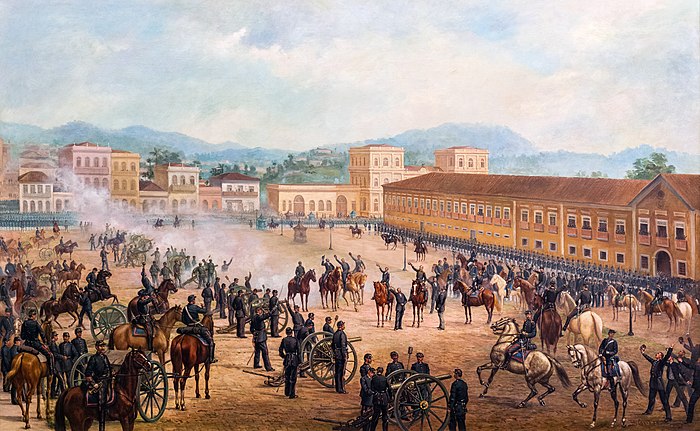
Namaste again, Reddit
Months ago, when four India-related topics appeared in the top 25, I predicted that the Traffic Report would eventually become a masala of American and Indian flavours. However, over time my prediction failed to materialise, as Indian topics gradually drifted out of the top list. Well, they're back now, and for the first time since this list began, have claimed both the top two slots. Another sudden returnee from seeming oblivion is Reddit, which had four topics in the top 25 for the first time in years.
For the full top-25 list, see WP:TOP25. See this section for an explanation of any exclusions. For a list of the most edited articles of the week, see here.
As prepared by Serendipodous, for the week of July 19 to 25, 2015, the 10 most popular articles on Wikipedia, as determined from the report of the most viewed pages, were:
Rank Article Class Views Image Notes 1 Bajrangi Bhaijaan 
1,510,842 
Bollywood's Muslim-targeted counterprogramming to the raging box office tsunami of Baahubali: The Beginning, starring Hindu/Muslim superstar Salman Khan (pictured) and opening on Eid weekend, has managed to make Rs 2 billion ($31.2 million) in its first nine days, and earned support from legends like Shekhar Kapur. It is the first Bollywood film to cross the 2 billion mark this year. But Khan's tweets in apparent support of Bombay bomber Yakub Memon have led to posters for the film being defaced in some areas. 2 Baahubali: The Beginning 
1,191,758 
At $41 million, this sprawling, two-part historical epic is the most expensive film in Indian history (no, it isn't actually Bollywood, since it was made in South India, much to Bollywood's chagrin). Starring the Telugu actor Prabhas (pictured), the first part, subtitled "The Beginning", broke box office records upon its release on July 10, earning Rs 2.15 billion ($34 million) worldwide in just 5 days and in just two weeks has already crossed the Rs 4 billion ($62 million) mark. 3 Ant-Man (film) 
1,002,486 Other than Guardians of the Galaxy, this was always going to be Marvel Studios's biggest gamble, and signs did not augur well after writer-director Edgar Wright abandoned the project when refused total creative control. And yet, while it is hardly the box-office miracle that Guardians was, it has so far outperformed Thor, another questionably saleable debut property. 4 Memphis Pyramid 
839,800 As noted in a Reddit thread this week, this Bass Pro Shops megastore is the tenth largest pyramid in the world, slightly behind the Bent Pyramid. 5 Donald Trump 
661,692 
The bombastic real estate developer and media personality continues his improbable rise to the top of Republican politics, much to the horror of the Republican establishment, who have been cheering for his sudden, swift downfall for weeks. But it appears nothing, not doxxing one of his opponents on live television, not insulting John McCain's war record, can dent his popularity in the run up to the controversial Fox News Republican debate, inclusion for which will be decided according to fairly meaningless national poll numbers. 6 Tutankhamun 
646,844 
The turbulent, short life of the boy king, son of the heretic ruler Akhenaten, was the subject of a miniseries on Spike TV this week, which saw ratings for the usually male-skewing network double. 7 Tsar Bomba 
602,258 
The largest single explosion ever detonated by mankind (not the image at left, which is free to use) had a mushroom cloud seven times higher than Mount Everest and rattled windows 900 km away, as learned in a Reddit thread this week. 8 Battleground (2015) 
592,797 
The WWE's latest pay-per-view pantomime was performed at the Scottrade Center in St. Louis, Missouri. 9 Deaths in 2015 
535,850 
The viewing figures for this article have been remarkably constant; fluctuating week to week between 450,000 and 550,000, apparently heedless of who actually died. 10 Death of Sandra Bland 
524,160 The death in police custody of this 28-year-old African American woman has been ruled a suicide, though the protests that greeted the ruling have highlighted its significance against a mounting backdrop of police violence against African Americans in recent months.




